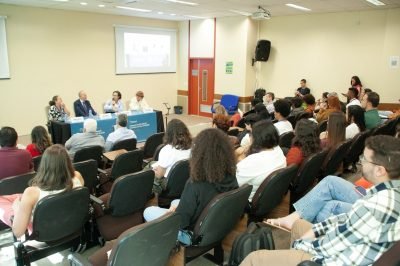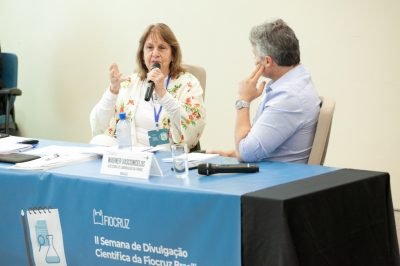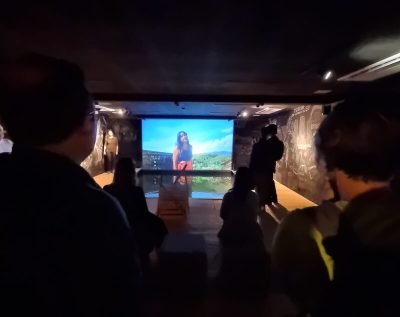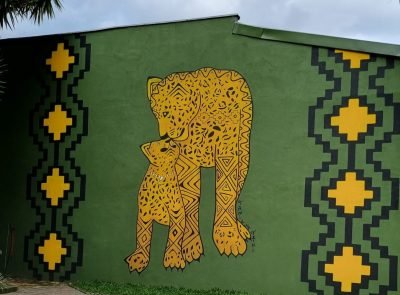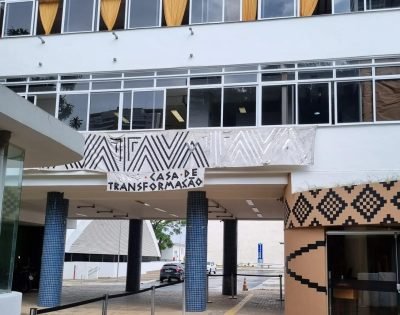Behind the Scenes of the Textile Industry, Korean Barbecue, and Public Health: Our Field Trip to Bom Retiro Neighbourhood, São Paulo
Camila Infanger Almeida (Mecila Doctoral Researcher / USP)
A walking tour led our fellows through the layered histories of migration, public health, and urban memory.
Our journey started at one of São Paulo’s most remarkable landmarks: Luz Station. It also set the tone for how the research team perceives the city—as a walkable space, interwoven with public transportation, which all participants were encouraged to use to reach the meeting point.
Our group was a mix of people born and bred in São Paulo, like myself, and others, in different levels, unfamiliar with the area. This created an intriguing initial atmosphere, as we wondered how the asymmetries in our experiences with the neighbourhood would play out during the guided tour. Spoiler alert: the research team managed to surprise us all with stops that traced Bom Retiro’s rich history of migration and public health.
Prof. Jeffrey Lesser opened the visit with a brief overview of the neighbourhood’s immigration trail, highlighting its African and Indigenous heritage, previous to the more recent waves of European, South American, and Asian migration. This introduction provided a helpful framework that remained in the background as we observed the diversity of people represented in the streets.


My designated guide was Alexandra Llovet, a medical student member of Jeff’s research team, who kindly led us through Parque da Luz, earning everyone’s attention by pointing out a monument illustrating early 1900s Brazil-Italy relations and by sharing curious facts, such as the existence of a former aquarium beneath the park.
The tour narrative included insights into the area’s architecture, such as adaptations to accommodate sweatshops, textile commerce, and storage facilities. We also learned about the walling off of certain streets—possibly linked to policies from a time when immigrants were viewed as potential disease carriers, thus subject to sanitation measures that were, in effect, closer to disinfection efforts.
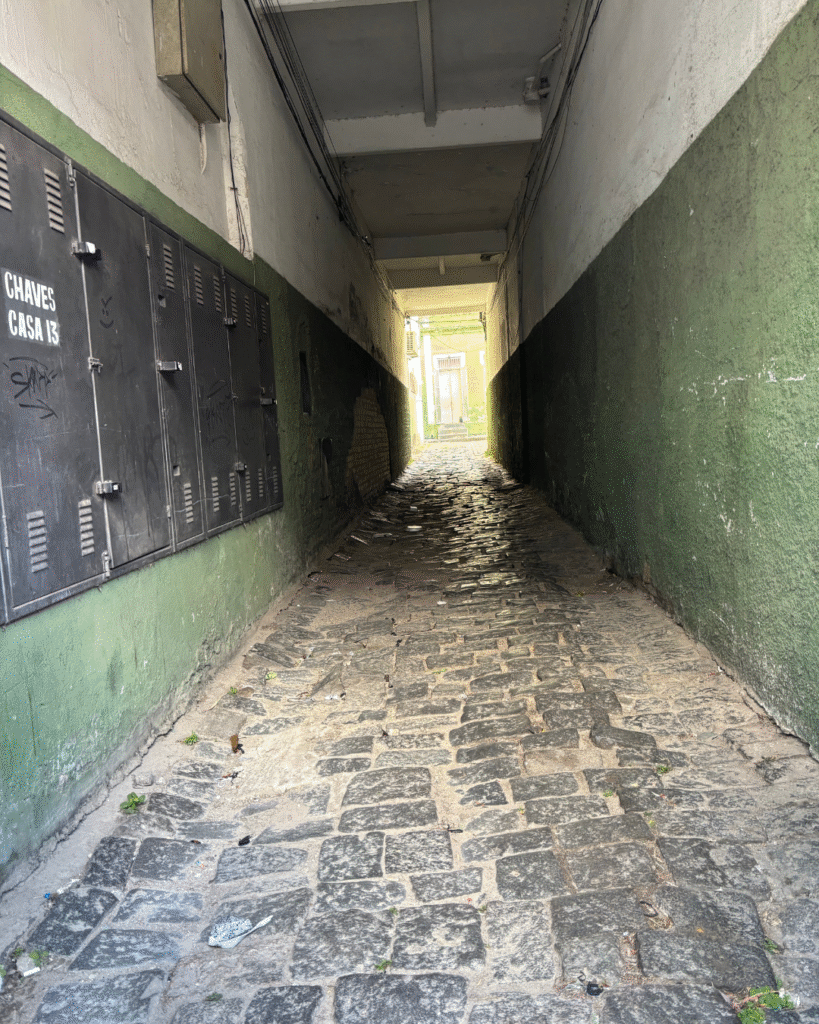


One of my favourite moments was having a peek at a hidden gem: a small village street, likely still paved with original cobblestones. It was first populated by Italian chocolate makers, whose name still appears on the entrance sign, and is now home to immigrants working in the textile industry.
The various elements of Bom Retiro’s population started to come together around what struck me as a common denominator: the local public health centre (UBS). Throughout the tour, Alex and Briana Yang, another research team’s member, frequently referred to the work of health agents in the community, access to healthcare, and how the UBS influenced the logic of spaces like the park.
The moment we walked past the UBS, we also bridged the two ends of the research scope: migration and health. Next, we arrived at the Museum of Public Health, located in a beautiful historic building—one that few people strolling through Bom Retiro would expect to find there. Our warm and knowledgeable guide, Leo, began our visit with a short talk on Emílio Ribas and Vital Brazil, major figures in Brazilian epidemiology.
Standing around the vehicles once used to immunise newly arrived migrants in a Brazil fearful of contagious diseases, we cringed at stories about the toxic substances once sprayed into Bom Retiro’s air.
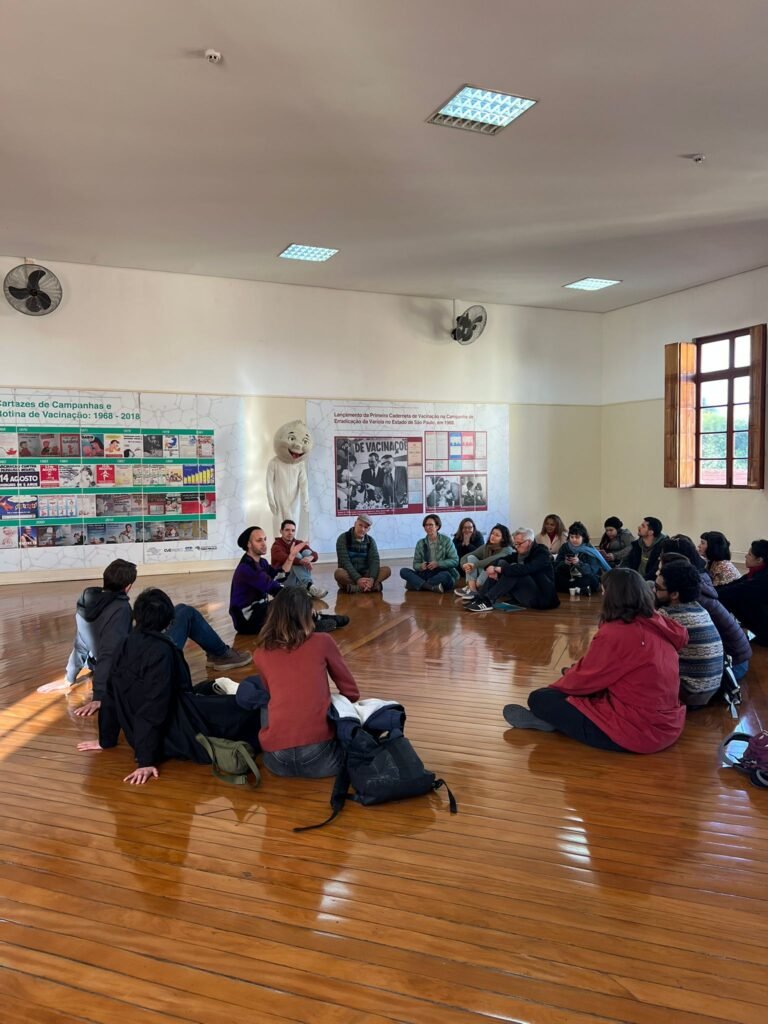

Upstairs, we learned about Brazil’s immunisation campaigns—the highlight being the personification of Zé Gotinha, the friendly mascot created to promote childhood vaccination—and explored unexpected intersections between spiders, snakes, and medicine, including a less-poisonous side to the infamous jararaca snake.
We then had a moment to chat and hear in more depth about the research team’s perspectives on their work and their personal connections to the area, its stories, and its peoples.
My first Mecila field trip ended with a joyful meal in a very typical spot, where we got to try Bom Retiro’s latest culinary influence—brought by one of the most recent waves of immigration: a delicious Korean barbecue dinner.
Many thanks to everyone who helped organize the field trip. It was truly a day to remember.
Pictures: Benjamin Junge, Camila Infanger Almeida, Carolina Motoki, Coco Sandoval

